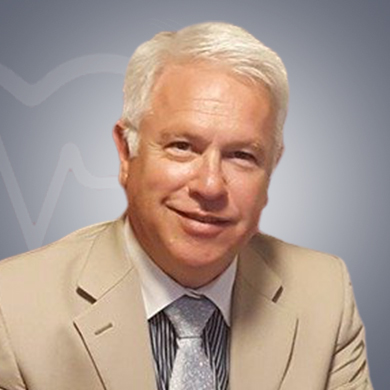
20 Years of experience
Speaks: English
Here is the list of some of the conditions Dr Paul Carter treats:
Some women require surgery to remove the entire breast through mastectomy. The surgeons remove the breast tissues including nipple and the skin and the tissues that have the chest muscles. You may opt for breast reconstruction after a mastectomy.
There are around 200 different types of cancer and all these can cause different symptoms. The symptoms are often linked to some cancer types. The signs could also be general, including weight loss, fatigue, and unexplained pain. Although there may be different symptoms in different types of cancer, some general symptoms of cancer include:
You can see Dr Paul Carter between 11 am and 6 pm from Monday to Saturday. The doctor is not available on Sunday.
The below-listed popular procedures for cancer treatment are performed by Dr. Paul Carter
The surgeon assesses the condition of the patient before performing any procedure to understand the risk associated with the procedure. The neurologist is popular for their high success rate and patient-centric approach which helps fast recovery of the patient. With vast experience in performing even the most complex cases with high precision and accuracy, the doctor follows medical protocols. Cancer surgery is done using two techniques - open surgery and minimally invasive surgery. Open surgery involves making an incision to remove the cancerous tissues. Some adjacent healthy tissues are also extracted in this process. There are several techniques available for minimally invasive surgery, such as cryosurgery, robotic surgery, laparoscopy, cryosurgery, and laser surgery.

Share Your Experience about Dr. Paul Carter

The surgical oncologist is often the first among cancer specialists to see cancer patients. The primary doctor most commonly does a diagnosis, and in cases where this requires biopsy or surgery, the surgical oncologist is called. Surgical oncologists are doctors with experience in cancer surgery. In some cases, a surgical oncologist performs surgeries to find out parts of the body where cancer has spread. In special cases, the surgeons do preventive surgeries. Sometimes, additional treatments like chemotherapy or radiation follow surgery. In these cases, surgical oncologists play an important role in providing care to the patients post-surgery.
Surgical oncologists may suggest the below-listed tests for the diagnosis of cancer:
A biopsy is a procedure in which a piece of tissue from your body is removed to analyze it in a laboratory. It is an effective way to diagnose cancer.
You should see a surgical oncologist in case your primary care doctor refers you to one. The doctor may also tell you to visit a surgical oncologist for the diagnosis of cancer. Some specialized general surgeons can also perform surgery on various types of cancer. Consider seeking assistance from a surgical oncologist in the below-listed situations: